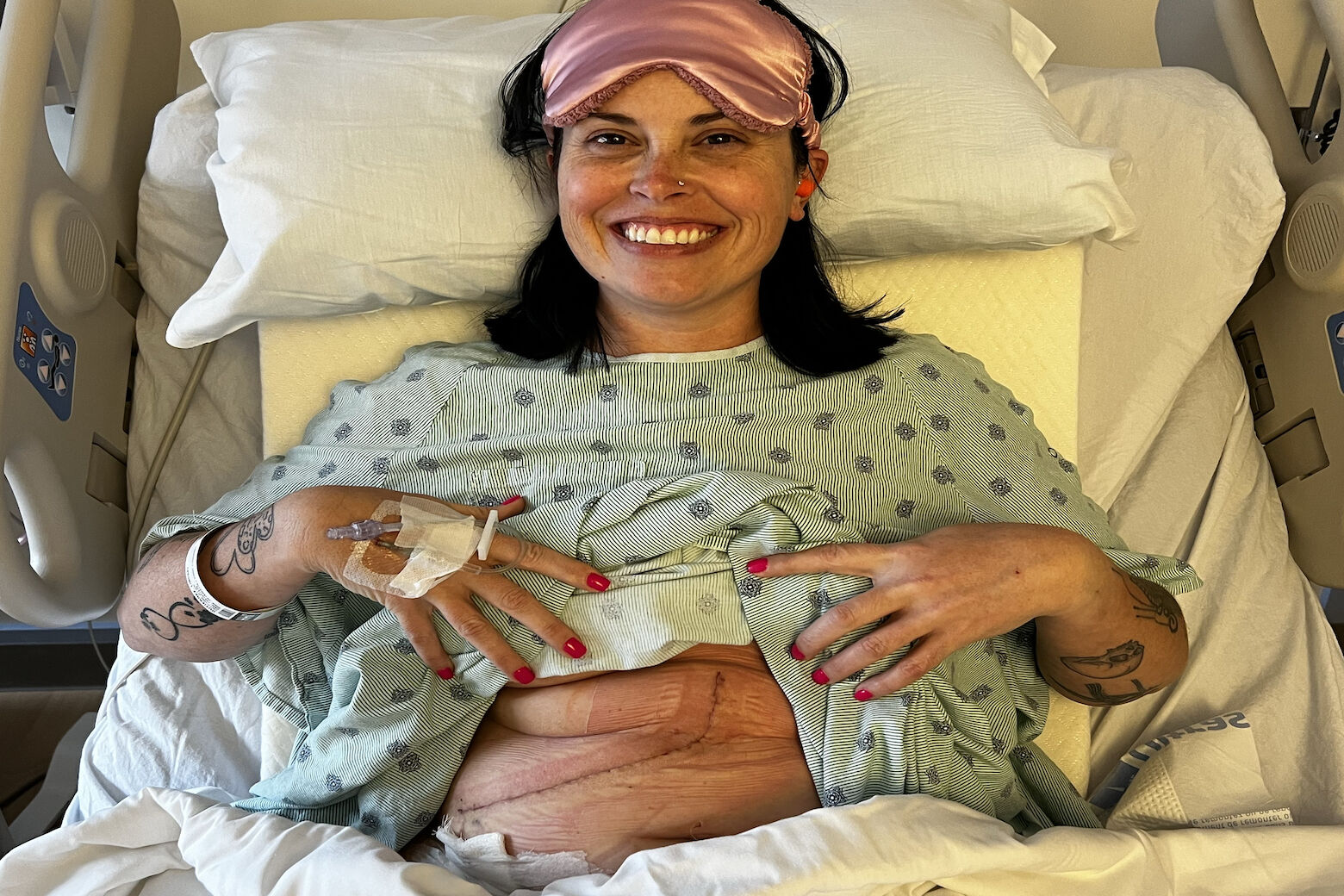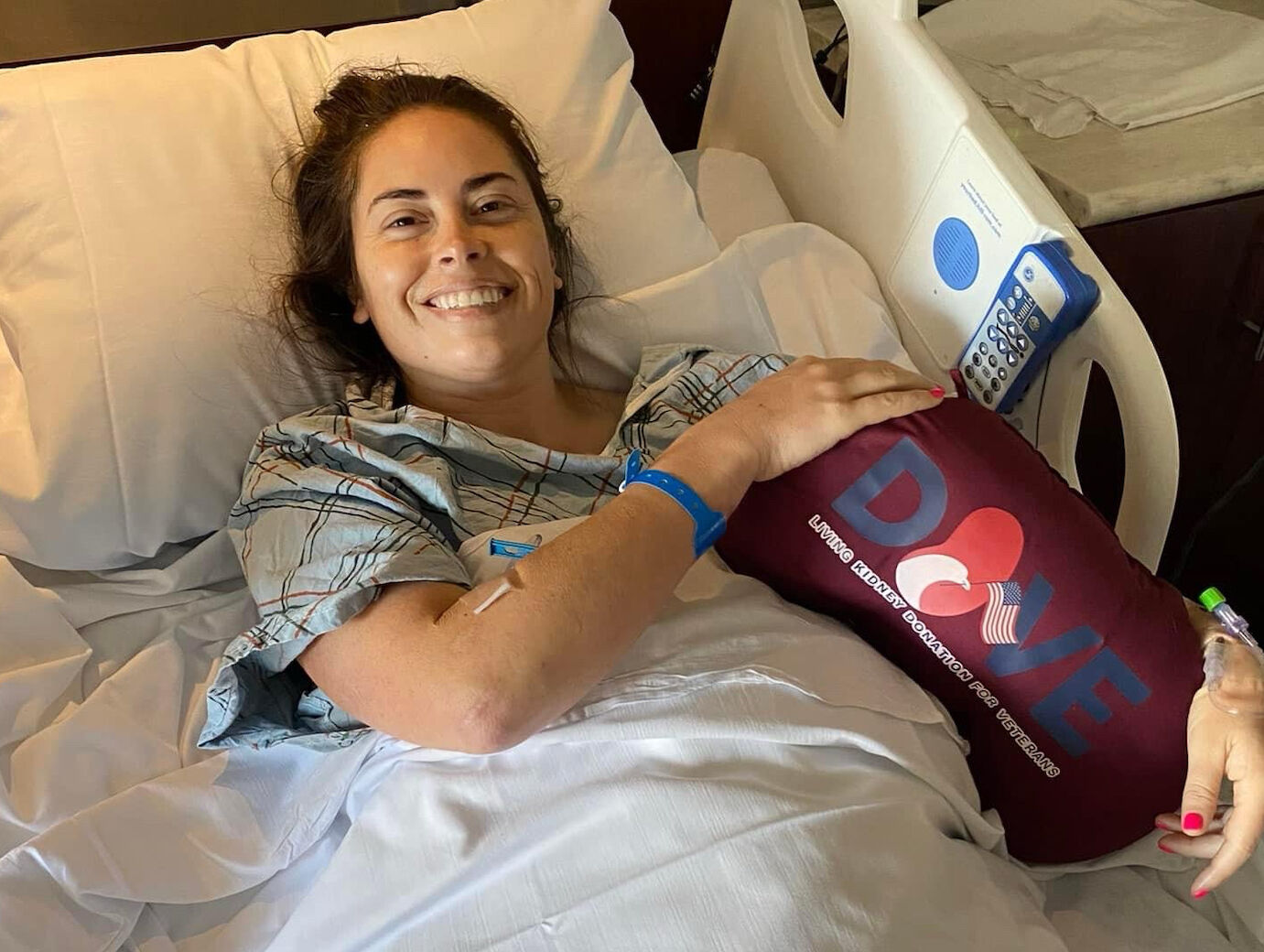







A Maryland woman is advocating for a bill aimed at increasing the number of live organ donors.
Lindsay Gutierrez, originally from Oklahoma, served in security forces for the U.S. Air Force from 2010 to 2016. After tours alongside her husband in both England and Georgia, she was transferred to Maryland to work with the Department of Defense. She currently lives in Ellicott City.
After receiving a Master’s degree in social work, Lindsay found herself wanting to give back to others in a big way. Recognizing she had an O-positive blood type, the most universal, she decided to become an organ donor.
“It’s a tremendous feeling,” she said. “I wanted to continue giving more service outside of my uniform. And this was another way I can continue to do that.”
In 2022, Lindsay donated her kidney to a fellow veteran in New York. Two years later, in April 2024, she also donated her liver to an anonymous recipient at Johns Hopkins Medical Center in Baltimore.
Lindsay said that she met the man her kidney had gone to, and it has become a life-changing relationship. She would also like to meet the recipient of her liver one day.
The donations make her a dual altruistic organ donor, having been a live donor that donated two organs to people she didn’t know. Gutierrez said she joined less than 200 such donors worldwide when she made the donation.
Now, she’s advocating for a bill that would give a $50,000 tax break to kidney donors. It’s called the End Kidney Deaths Act.
“We don’t have enough living donors, and this is why the act is being pushed into legislation: to be able to provide a different way and incentive for people to come forward,” she said.
The End Kidney Deaths Act is a 10-year pilot program aimed to provide a refundable tax credit of $10,000 each year for five years, which adds up to $50,000 total to living kidney donors who donate a kidney to a stranger.
Kidneys would go to those who have been waiting longest on the kidney waitlist.
Organizers of the bill said that deceased donor kidneys last half as long as living donor kidneys.
“I don’t think that people really understand how much this is critical to the life saving care for those on the transplant list.”
Get breaking news and daily headlines delivered to your email inbox by signing up here.
© 2024 WTOP. All Rights Reserved. This website is not intended for users located within the European Economic Area.








